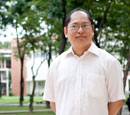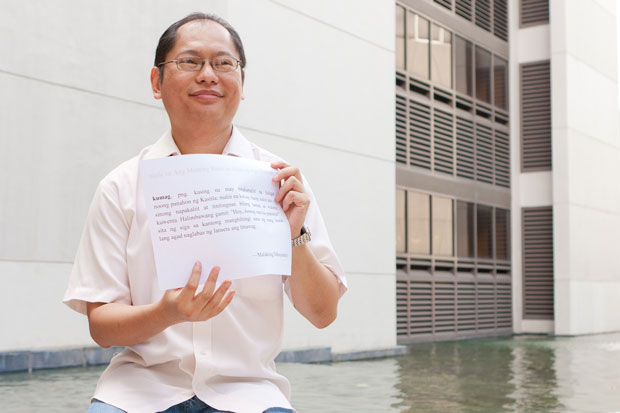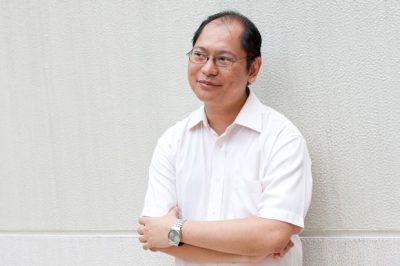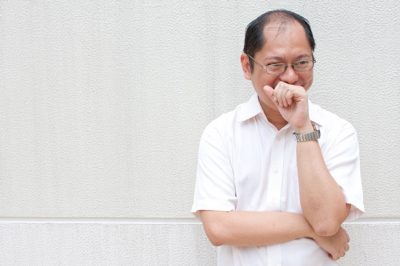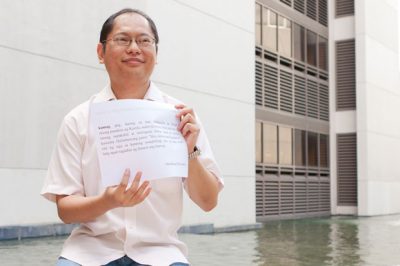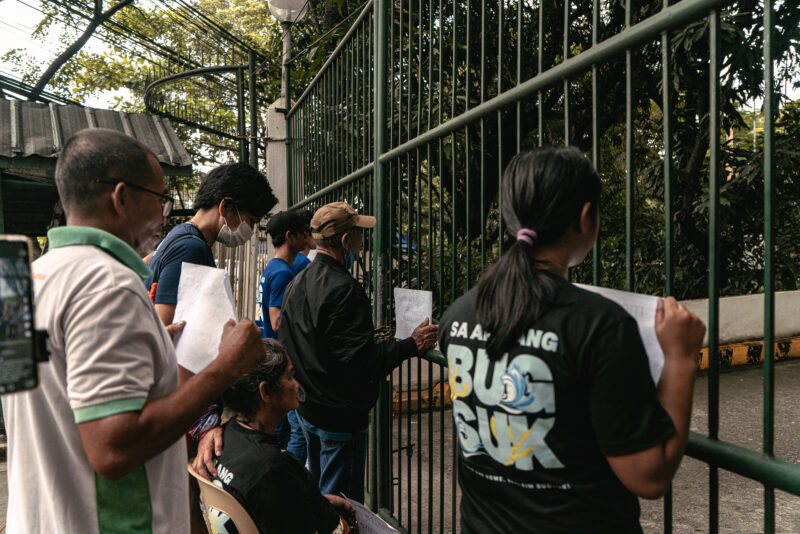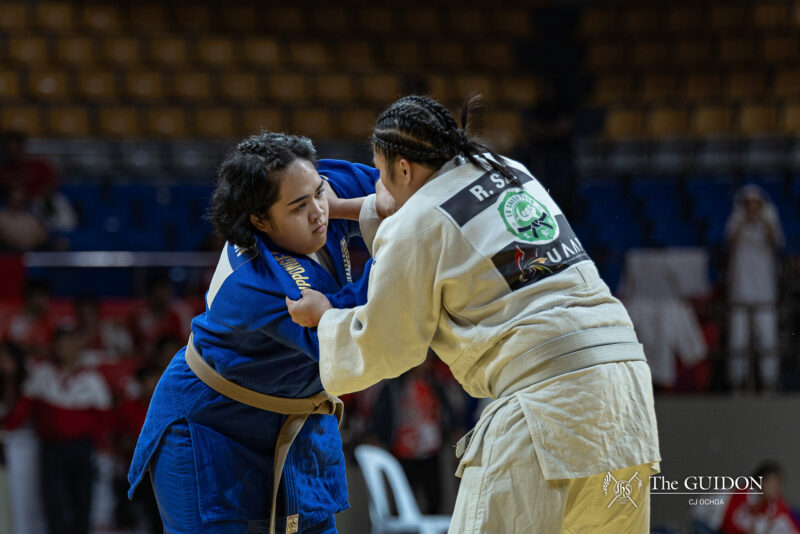Four-time Palanca Award-winning author Allan Derain sets down a copy of Zoë Heller’s Notes On A Scandal as we settle in the mess hall. We mention that we’re fans of the film adaptation and this shatters his seeming aloofness. It’s as if a light has crackled to life behind his eyes. He then begins an animated discussion of Heller’s skill as a ventriloquist—someone who breathes life into a distinct fictional character to the point that they seem eerily real.
At this year’s Carlos Palanca Memorial Awards for Literature, Derain won the Grand Prize for the Filipino Novel with his work Ang Banal Na Aklat Ng Mga Kumag. The win is especially prestigious not just because a Palanca Award is considered to be the Philippine equivalent of a Pulitzer Prize, but because the Grand Prize for the Novel is only awarded every three years.
As we interviewed him, we discovered more of the celebrated professor’s wit, verve and his take on what it really means to write.
A novel approach
When asked what inspired his novel, Derain begins by critiquing the question itself. He says some writers don’t function by inspiration, but simply engage in writing. “The better question would be, ‘What inspired you to think?’ That’s something you don’t hear that often,” he says in Filipino.
Like thinking, writing is not simply inseparable from Derain’s daily life; it is his daily life. He shares that he once kept several notebooks to aid his writing process: one for dreams, a diary, one for sudden insights—the list goes on. While he has now reduced these to a single notebook, his process remains meticulous.
Derain pools his ideas from these notes on daily life. One day, he realized that the entries contained recurring images of small things, such as a line of ants walking along a windowsill. This was the fuse for Ang Banal na Aklat ng Mga Kumag.
The word kumag refers to the smallest measurement of currency and connotes near-worthlessness. Kumag began as a set of vignettes about small things—minuscule animals, minute objects, even marginalized people—and a god that rules over them. After a push from the UP Writers Workshop, he began fleshing out each vignette to become a chapter of the novel.
Though you would never expect it from such a serious-looking man, Derain’s storytelling is charged with wry, sardonic wit. Edgar Samar, his colleague in the Filipino Department, has many stories of his adventures with Derain—like “the time Allan picked a fight with a rude tricycle driver” and “the time Allan got victimized by a Wow Mali-type hidden camera show then ran away.”
He shares in Filipino, “He’s a very frank person. Some find it off-putting, but he’s got great insight. He makes sense.” As a fellow writer, Samar adds, “His novel is so different from everything else out there right now. It’s important to consider what his influence will be.”
His novel is so different from everything else out there right now. It’s important to consider what his influence will be.
– Edgar Samar, Derain’s colleague in the Filipino department
Divisive discourses
For his students, his impact is more immediate: in the classroom. At first, Derain appears to be your typical professor, sober and a little intimidating. However, what one would discover in his classes is his genuine passion for literature, his skill for deciphering texts and his desire to instill the same enthusiasm in students. His classes are known to be demanding, but as one of his former students, AJ Elicaño (III BFA CW), explains, “[Derain] doesn’t just push you to your limits; he expands your limits.”
However, Derain admits that before taking a class under the late writer Rogelio Sicat, his own notion of Filipino literature was flawed. “If someone said ‘literature,’ it had to be written in English,” says Derain. “If it were written in Filipino, I didn’t know what to call it or whether it was still literature.”
Even today, Derain observes that Filipino writers are often sidelined in their own country. While award-giving bodies honor the works of the Filipino literati, the same reception is not guaranteed from those outside the literary sphere. The fact that a single shelf is allotted for “Filipiniana” books—at the back of bookstores, even—is telling. “Literature is still at the margins of society—Philippine literature, especially,” he muses.
While such biases continue to pervade the Filipino mindset, Derain remains cautiously optimistic. He continues to receive requests from students and teachers of various schools asking for copies of his Palanca Award-winning stories. He feels this is a good sign, saying that while Filipino literature textbooks are often limited in their scope, there is a thirst for Filipino literature that the textbooks don’t provide.
In the realm of small things
When asked if he’ll ever get tired of winning Palancas, he jokes, “Yes, because I need to rest. Chos!” He reveals a more serious answer: that a time will come when he will stop submitting work for the Palanca Awards and let other writers send in their work. This, however, doesn’t mean he will stop writing—or teaching.
The night he was awarded his most recent Palanca, Derain echoed something Sicat taught him. “There are already so many people enriching the English language,” he said in Filipino in an interview with The GUIDON that night. He feels that writing in Filipino and teaching Filipino literature is his way of enriching the national language. Like his stories, it is a choice that is equal parts political and personal.
In this way, Derain seems to be a ventriloquist all of his own. Both as a teacher and a writer, he breathes life to the unnoticed and the underappreciated; as the master in the wings, his power is making their voices heard.
- Photo by Kat A. Mallillin
- Photo by Kat A. Mallillin
- Photo by Ryan Y. Racca
- Wading in a World of Words

